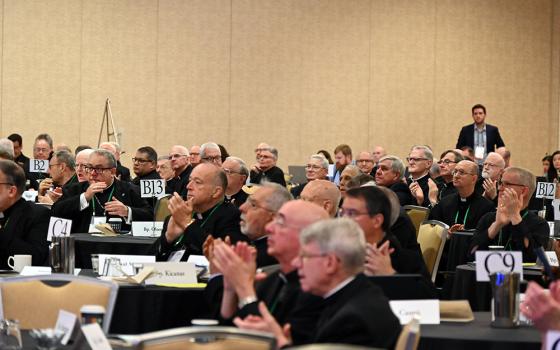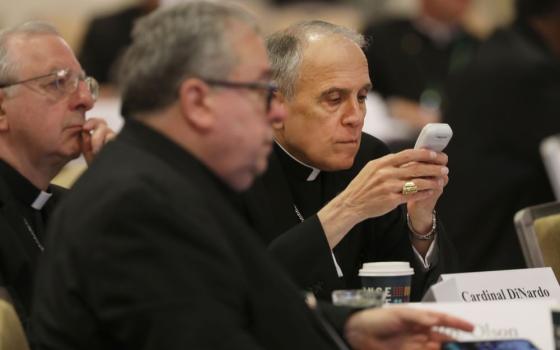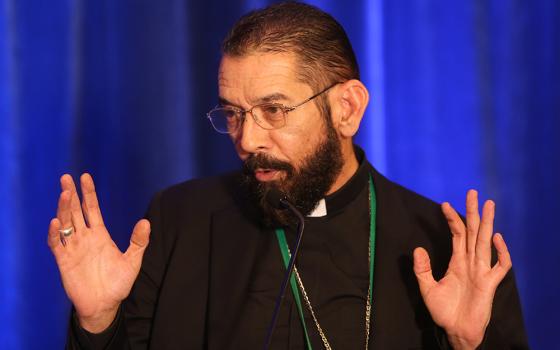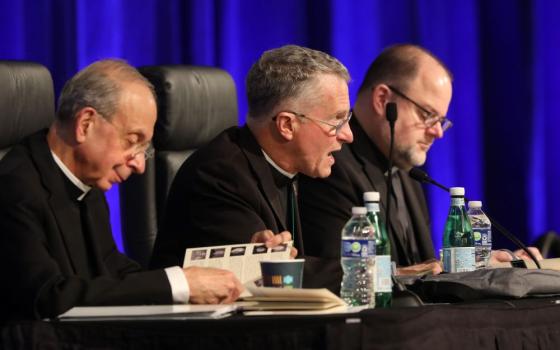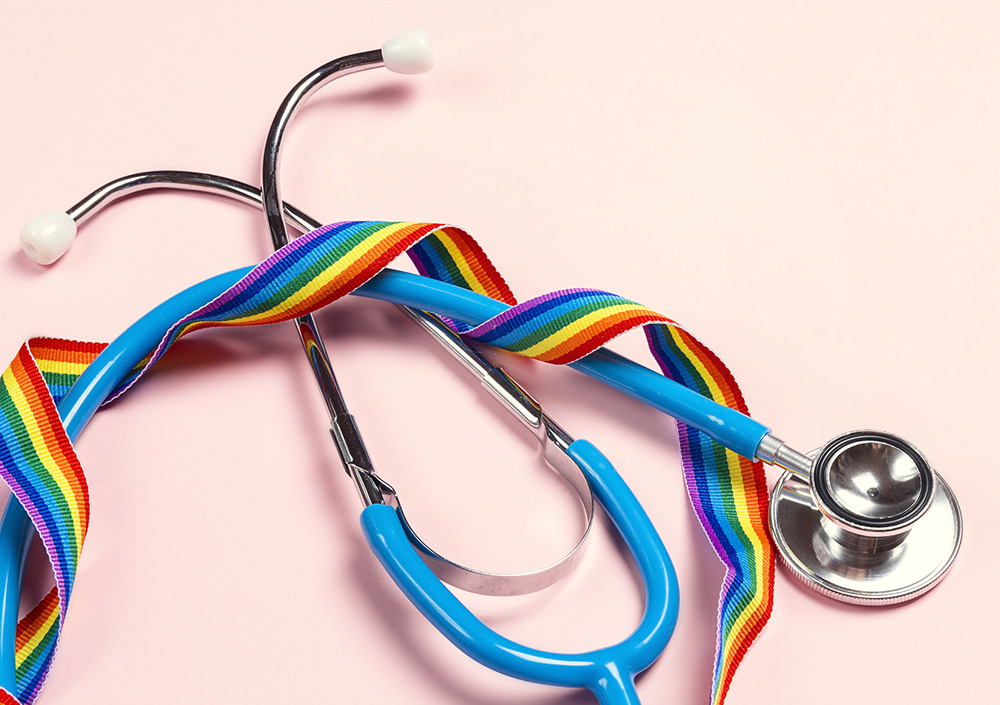
(Dreamstime/Oksana Ryzhinskaya)
At this week's meeting of the U.S. Conference of Catholic Bishops, one of the agenda items is "a revision of Part Three of the Ethical and Religious Directives (ERDs) for Catholic Health Care Services." Part of the revisions would include assessing what kind of care Catholic hospitals would, and would not, provide to transgender persons.
This is worrisome. It is hard to imagine how this discussion won't open up a new front in the culture wars for the bishops.
Earlier this year, the bishops issued their "doctrinal note" clarifying how Catholic health care should, and should not, provide care for transgender persons. I wrote at the time that the note suffered from some problems, as did many of the criticisms of it. I will have more to say about the blind spots on both sides of the ideological debate about transgender issues another time, but now, let's focus on the Ethical and Religious Directives discussion.
Health care is an enormously complex reality. I remember one of the smarter bishops I know telling me once, "I used to think that universities were the most complex institutions in the church, but now I realize it is hospitals. There are so many discrete decisionmakers who need to come to a consensus for the institution to make a singular decision."
They intersect with a diverse set of governmental agencies, at the federal, state and local levels. They inhabit a professional universe with ever-changing ideas about care.
In the face of such complexity, the bishops should want to consult extensively those working in the field before they make any decision, and they should think long and hard before discounting what they learn from those frontline workers.
If the bishops' conference is not listening to the Catholic Health Association, to whom are they listening? My concern is that they are listening to the National Catholic Bioethics Center.
In this area, that organization is the Catholic Health Association, whose track record is, to my mind, unparalleled. It had the courage to publicly differ from the U.S. bishops' conference over support for the Affordable Care Act. President Barack Obama gave Daughter of Charity Sr. Carol Keehan, then the head of the association, one of the signing pens for the landmark legislation, and there is little question the act might not have passed but for Keehan's intervention, a fact that only angered the conservative leadership at the bishops' conference. The bishops tacitly acknowledged she had been right when they refused to support overturning the act in 2017.
The current president and CEO of the Catholic Health Association, Mercy Sr. Mary Haddad, ably carries on Keehan's work. I asked her about the directives.
"In a meeting we had with USCCB staff last month, we were told that the next step for the adoption of the doctrinal note is to revise the ERDs," Haddad told me in an email. "This isn't a surprise to me. The body of bishops must agree on initiating a process to revise the directives. If they do support the process, I know that CHA will be involved."
Then she added the part that worried me. "CHA works closely with the USCCB. We reviewed the doctrinal note, but all our suggestions were not accepted."
If the bishops' conference is not listening to the Catholic Health Association, to whom are they listening? My concern is that they are listening to the National Catholic Bioethics Center. The group is promoting its involvement on this issue, even raising money off of it. A recent fundraising email from the organization stated:
The National Catholic Bioethics Center has been at the forefront of the Church's efforts to navigate the difficult waters of bioethical questions in medicine, law, and culture for more than fifty years. Not only have we taught thousands of students and completed tens of thousands of free consultations, we've also assisted the bishops in addressing the most challenging bioethical questions the Church has ever confronted, most recently, transgenderism.
The link brings you to the bishops' doctrinal note.
The National Catholic Bioethics Center has long provided advice to bishops about bioethical issues — conservative advice, but thoughtful and informed advice. John Haas, the center's longtime leader, was respected by many bishops for his ability to stay true to the church's teaching while recognizing the complexity of certain bioethical situations and issues.
Advertisement
Privately, more than one bishop has voiced concern to me that the current leadership at the center is more easily swayed by the culture war zeitgeist.
A visit to the center's website amplifies the concerns. The new president of the organization, Joseph Meaney, issued a message celebrating the New York Supreme Court's ending of the vaccine mandate in New York state, stating: "A big part of the reasoning behind the ruling was the now-acknowledged scientific fact that the various COVID vaccines do not stop transmission of the disease."
The Centers for Disease Control and Prevention still recommends getting a vaccine, especially the bivalent version that better protects against the current iterations of the virus.
One of the National Catholic Bioethics Center's ethicists, John Di Camillo, wrote an article for Legatus that got reprinted at the center's website, in which he stated, "Given the varied ways COVID-19 impacts different regions, a vaccine mandate from federal or state governments would be too blunt an instrument. This would feed a lack of public trust."
In the face of a worldwide pandemic, concerns about small government are misplaced. Only a federal response was capable of combating the pandemic. It is talk like this that feeds the conspiracy theory culture that is the true source of a lack of public trust.
Or this article, from the center's blog "Making Sense of Bioethics," in which Fr. Tadeusz Pacholczyk compares the birth control pill and Viagra. He writes, "This parallelism between men and women is not a compelling one, as women have a rather strict and well-defined natural age limit on their fertility, while men do not, with many remaining quite capable of fathering children even when they are elderly, often without any assistance from drugs like Viagra. The use of these drugs, then, even by older married men, cannot somehow be construed as 'against nature.' "
I suggest they rename the blog "Making Nonsense out of Bioethics."
The bishops need to listen to the frontline Catholic health care workers represented by the Catholic Health Association, not the culture warriors who now rule the roost at the National Catholic Bioethics Center. There is no pressing need to change the Ethical and Religious Directives and any effort to do so will likely cause the church to be seen, yet again, as a field marshal in the culture wars. That is not a good look for pastors.





